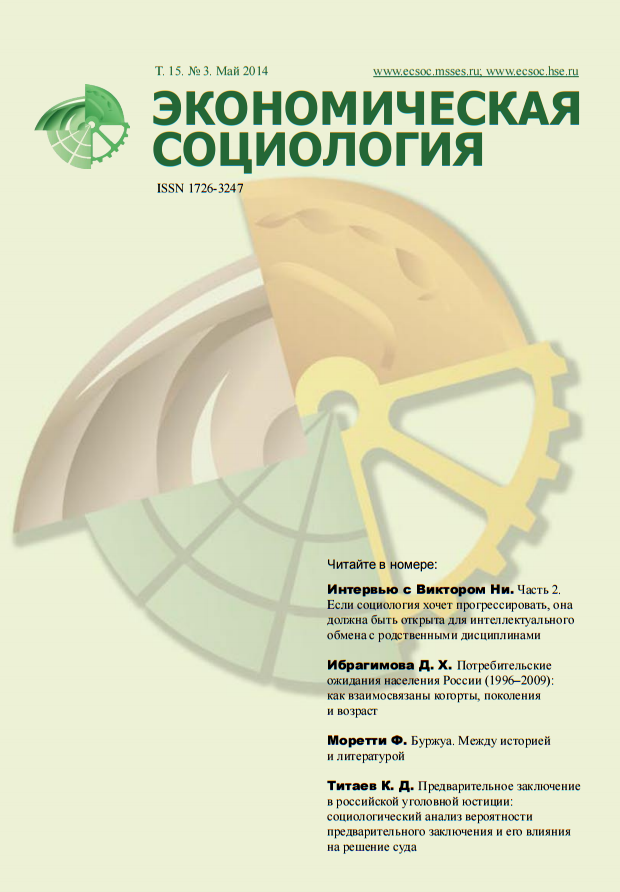Interview with Victor Nee:
Sociology Should be Open to Intellectual Trade with Ally Disciplines (Part 2)
Abstract
Economic Sociology’s May issue includes the continuation of our conversation with Prof. Victor Nee held in October 2012. (See the March issue for the first half, Vol. 15. No 2. Pp. 11–21.) The interview was conducted by Alexander Kurakin, a senior lecturer at National Research University Higher School of Economics in Moscow. Here, Professor Nee re-emphasizes the importance of developing middle-range theories in order for economic sociology to progress by obtaining external validity. He cites some examples of this, including his recent research on the rise of capitalism in contemporary China that resulted in the book “Capitalism from Below” [Nee, Opper 2012], and the ongoing study of the knowledge economy in New York City. Both are empirical, evidence-based studies that rely on common conceptual frameworks that take into account the salience of the relationship between formal and informal institutions.
According to Nee, there is one more important condition contributing to the fruitful development of sociology; that is it should be open to intellectual trade with ally disciplines. In this context, immigration is mentioned as a field of inquiry where successful cooperation among economists, sociologists, demographers and representatives of other disciplines can be found. Within this research perspective, scholars communicate across disciplines, with an emphasis on the importance of revealed facts and regularities. The external validity of internal achievements serves as recognition of their significance for the behavioral sciences in general.













